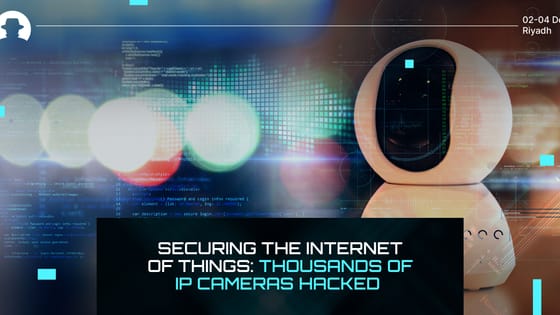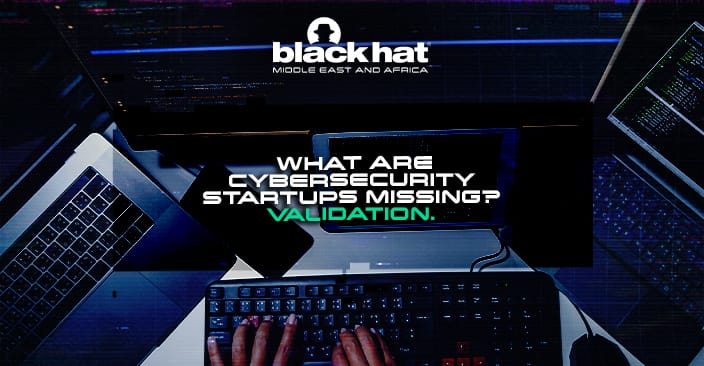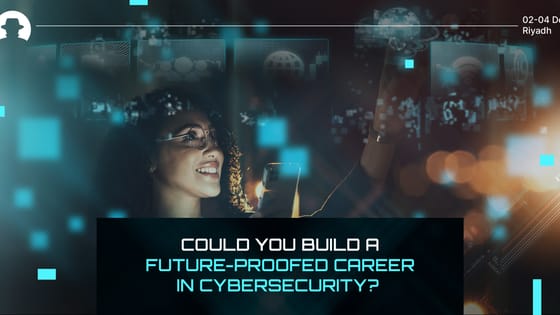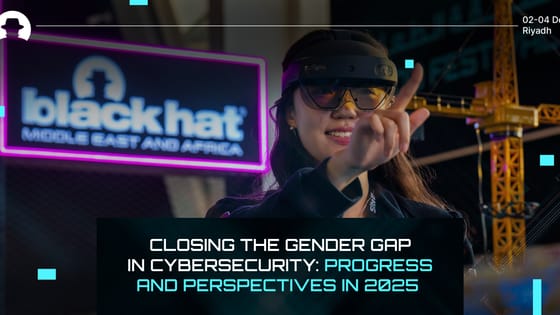
Securing the Internet of Things: Thousands of IP cameras hacked
The latest in a long line of attacks against IoT devices that highlights the vulnerability of the Internet of Things.
Read More
Moataz Salah (CEO at CyberTalents) identified the need to feed new talent into the cybersecurity sector – and together with his co-founder, he did something about it.
CyberTalents is “an end-to-end talent platform that enables companies, governments, and universities to assess, upskill, engage, and hire cybersecurity professionals.” It’s geared at addressing the global cybersecurity talent shortage, protecting the future of security by identifying human potential and training critical skills.
We wanted to learn more about the platform, and dig into Salah’s perspective on entrepreneurship in cybersecurity.
“As a cybersecurity enthusiast, I've always been passionate about building communities and fostering a collaborative environment. In 2010, I founded Cairo Security Camp, the first technical cybersecurity conference in Egypt. The following year, I hosted the first CTF in the region. These experiences allowed me to connect with top cybersecurity professionals and recognise the growing global shortage of cybersecurity skills, which became a significant issue in 2018.
“In response to this challenge, I co-founded CyberTalents in 2018. Instead of organising a yearly CTF, we created an end-to-end talent platform that enables companies, governments, and universities to assess, upskill, engage, and hire cybersecurity professionals. This platform addresses the global need for skilled cybersecurity professionals and helps organisations build stronger security teams.
“To date, we’ve helped different entities to run more than 300 cybersecurity simulations/CTFs, trained more than 40,000 users, and we host the largest database of cybersecurity professionals (80,000+).”
“I believe that idea validation is crucial for the success of any startup, especially in the cybersecurity sector. The main challenge is that many founders come from a technical background and may have a great idea for a product, but they often lack the business experience to validate it.
“This can lead to building products that solve a problem that no one has, or that are not a good fit for the market. Cybersecurity entrepreneurs need to spend more time validating their ideas before they start building. This can be done by talking to potential customers, conducting market research, and getting feedback from industry experts. It's also important to consider the business side of things, such as the target market, pricing, and competition.
“In my own experience, I've found that idea validation is an ongoing process. Even after you've launched your product, you need to continue to get feedback from customers and make adjustments as needed. This is the best way to ensure that your product is meeting the needs of the market and that your business is successful.”
“Regarding the state of cyber awareness in our region, I believe it is improving, but there is still a long way to go. While many organisations are starting to take cybersecurity more seriously, there is still a lack of understanding about the importance of cybersecurity among the general public.
“I believe that governments need to play a more active role in promoting cybersecurity awareness by implementing policies that force organisations to embed cybersecurity awareness into their daily operations. This includes schools, universities, and businesses.”
“I wish everyone knew that all of us are subject to cyber attacks – either individuals or SMEs or any other entity. I always hear from people, ‘why should I be a target, I have nothing to worry about.’ However, we all have things to care about.
“If it is not your money at the bank, if it is not your medical records that might cause you to take a wrong medicine or a wrong dose, it might be your home address that could affect the safety of your family and your kids. Cybercriminals are out there and once you understand risks and threats, we can all protect ourselves from becoming victims.”
“My favourite experience at Black Hat MEA 2023 was mentoring in the cyber seed pitching competition for startups. It was an honour to be a part of such a talented and passionate group of entrepreneurs, and I was proud that one of my mentees won the cash prize.
“I believe that Black Hat MEA is changing the cybersecurity conference experience in the region. The activities, such as the lock-picking village and car-hacking village, provide a unique and engaging way for attendees to learn about cybersecurity threats and trends. The networking opportunities that Black Hat MEA provides are essential for building relationships and fostering collaboration within the cybersecurity community.”
Thanks to Moataz Salah at CyberTalents. Are you a cybersecurity entrepreneur? Come to Black Hat MEA 2024 to immerse yourself in industry opportunities.
Join the newsletter to receive the latest updates in your inbox.

The latest in a long line of attacks against IoT devices that highlights the vulnerability of the Internet of Things.
Read More
Why cybersecurity offers a long-term career opportunity with strong progression and stability.
Read More
Learn from Irene Corpuz (Founding Partner and Board Member, WiCSME) and understand the challenges ahead for gender diversity in cyber.
Read More